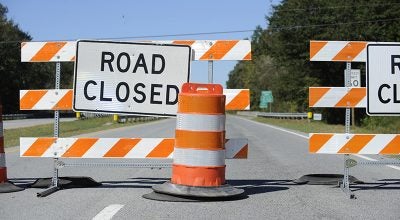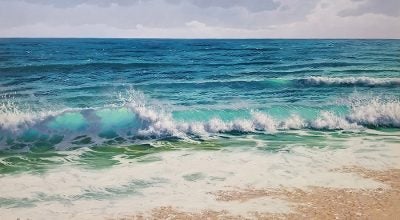Proposal to Halt Trawling in Coastal Areas up for Vote.
Published 11:32 am Tuesday, July 23, 2013
A proposal to halt trawling in North Carolina’s waters could affect area fishermen.
The North Carolina Division of Marine Fisheries will be voting on this issue at its Aug. 28-30 meeting to be held in Raleigh.
“The petitioner will present his reasons for submitting the petition. He will answer any questions that the advisory committees will have,” said Nancy Fish, Marine Fisheries Commission Liaison
Fish explained that the petitioner Timothy Hergenrader, of Reelsboro is a recreational fisherman asking to have shrimp trawling banned in internal coastal waterways such as the Pamlico Sound, Bogue Sound, and parts of the Neuse River.
Hergendrader wants to have some area waters designated as permanent secondary nursery areas if they are not already primary nursery areas or special secondary nursery areas.
“This effect should result in a small reduction in the cost to the state of North Carolina for fisheries management since the NCDMF would no longer need to conduct shrimp size sampling in order to open shrimp season in inshore waters,” reads a portion of the proposed request at ncdenr.org
The proposal includes areas of the Roanoke, and Pamlico Sounds as well as parts of Pungo River.
Hergendrader mentions that privately owned shrimp boats participating in the North Carolina Shrimp Fishery would expend extra fuel to reach lawful shrimp harvest grounds.
“These additional fuel expenditures should be at least partly offset by the fact that under the proposed change the shrimp harvested would be larger, mature shrimp as opposed to the smaller shrimp harvested inshore and therefore be more valuable,” says Hergendrader.
Hergenrader submitted the petition earlier this year to the Division of Marine Fisheries. His concern is the declining population of the once common weakfish, Atlantic croaker, and spot.
Hergendrader has stated earlier that trawling bycatch is contributing to the demise of certain fish “Bycatch” is anything a fisherman catches that he didn’t mean to catch. It’s been a shrimp industry problem for decades.
Nancy Fish with the Division of Marine Fisheries says the agency cannot definitively say how much bycatch the shrimp trawling industry takes in.
In his petition, Hergenrader cites a study by Division of Marine Fisheries in 2009 saying that 500 million small fish are killed by shrimp trawlers every year, but Fish says this statement is not correct.
The Division Marine Fisheries will present a response and open the floor up to public comment when they discuss this issue on July 30.
“Our four advisory committees are going to meet about this. Finfish, shellfish crustacean, habitat and water quality, and our seaturtle advisory committee are all jointly meeting to hear this issue. They will make recommendations about going forward to the Marine Fisheries Commission,” said Fish.
The Marine Fisheries Commission would either vote to initiate rulemaking or deny the petition. The Marine Fisheries typically sets fishing regulations in coastal waters.
The trawling ban would still face a long road before it went to effect.
“It takes two years to go through that rule-making process. There is also lag time between voting on the rules and the effect date. The process, all in all, can take about two years,” said Fish.
The proposal has drawn some criticism.
Kris Noble, Planning and Economic Development Director for the Hyde County Office of Planning and Economic Development said that the proposal would hurt local fishermen in Hyde County.
“The Inshore Trawl Ban would devastate the commercial fishing industry in North Carolina, put men and women out of jobs and would mean no more fresh local North Carolina shrimp on restaurant plates or available for purchase. The proposal that seeks to designate all of our state’s inland waters as permanent secondary nursery areas would close those waters to trawling. North Carolina will lose a substantial source of economic commerce, a bountiful resource and a large segment of our traditional fishing industry,” she said.
Noble explained that the designation would be economically devastating to Hyde County as well. Hyde County would lose jobs, commerce, infrastructure and tax base.
“I cannot imagine how Hyde County could ever replace those jobs,” she said.
The Hyde Board of Commissioners will vote on a Resolution opposing the designation of inshore waters as permanent secondary nursery areas on August 5, 2013.
Another petition by Megan Spencer of Ocracoke seeks to blunt the impact of the inshore trawling ban proposal.
“Local businesses, fishing families and coastal communities depend on catches from trawlers – namely shrimp – as a source of economic commerce, as well as locally-grown, organic protein. More than 90 percent of all shrimp consumed in the country is imported. By designating the state’s inland waters as permanent secondary nursery areas, they would be closed to trawling. If that were to happen, North Carolina would lose a considerable amount of income to foreign competition, as well as access to this bountiful resource and a historic profession among generations of coastal citizens. Secondary nursery areas are already in place to protect habitat in inland waters. Please don’t close the entire area to trawling,” reads the text of the petition on change.org/petitions.
The petition is addressed to W. Robert Bizzell and has 2693 supporters.





